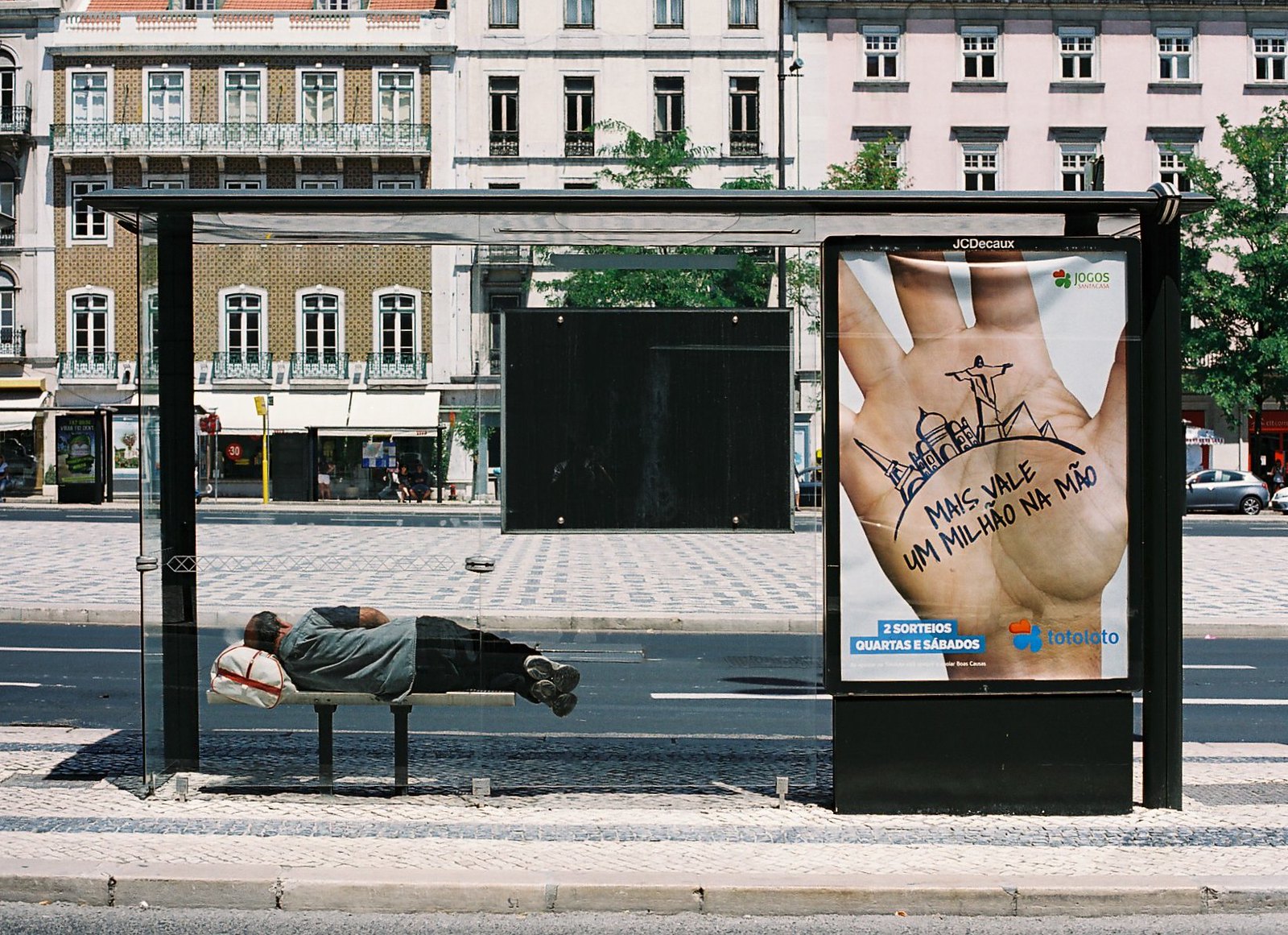Around the world, unhoused people lost access to drugs they need to survive as a result of disruptions to incomes and reduced retail hours caused by COVID-19 lockdown measures. Unlike countries such as the United States, Portuguese authorities quickly outlined an alcohol harm reduction vision for unhoused people as the country’s COVID-19 outbreak got under way in March 2020.
In guidelines published in April, the federal Portuguese National Drugs Agency (SICAD) responded to concerns about more unhoused people experiencing potentially fatal alcohol withdrawal syndrome by outlining a policy for low-threshold, on-demand pharmacological treatment provided by nurses at homeless “reception centers.” It includes a regimen of benzodiazepines, vitamins and hydration. At least 22 unhoused residents of Lisbon have participated in the pharmacological treatment, according to a January 25, 2021 study published by Harm Reduction Journal.
SICAD also recommended referrals to the Managed Alcohol Program (MAP), which would be the first of its kind in the country. As described* by Portugese harm reduction expert Marta Pinto to the news site Publico, unhoused individuals with “highly problematic consumption” and who are experiencing “devastating damage with regard to their socio-employment insertion, their psychic balance, their organic health” would work with multidisciplinary teams of social workers and clinicians to determine their type of drink, time of consumption and quantity of consumption. Individual plans are required to work towards reducing use.
A MAP has yet to go live—and so on January 26, City Assembly Representatives Inês de Sousa Real and Miguel Santos called for its implementation.
“We live in an extraordinarily difficult moment, which pushed dozens of people onto the streets of Lisbon, all with different life paths and for which specific answers are needed,” said Assembly Member Inês de Sousa Real in a press release. “As a society, we cannot continue to ignore a large group of people who still do not have an adequate alternative to stay overnight.”
Currently, Lisbon hosts the country’s first and only MAP. That makes sense, since the majority of Portugal’s 4,500 unhoused people live in the metropolitan area, and as of December 2020, it’s estimated by the city that about half of rough-sleeping unhoused Lisbon residents, or 150 people, are “dependent” on alcohol or drugs. Those same figures suggest that more people are living on the streets since the start of the COVID-19 crisis, with an additional 140 people yielding a total of 356 rough sleepers.
MAPs originated in Canada in the late 1990s after three people died in Toronto. According to a 2016 Canadian study of unhoused Indigenous people, participants of a residential MAP enjoyed better experiences compared to their non-MAP peers, measured in terms of physical and psychological health, as well as quality of relationships and the environment. A 2019 literature review found that research has evidenced that MAPs decrease daily alcohol consumption and police interactions, reduce alcohol-related harm and emergency department visits, and increase quality of life.
“A person in a situation of homelessness and almost absolute social exclusion finds it more difficult to manage their consumption on the street than in a protected context where their basic needs are assured and where they are provided with various care,” Pinto told Publico.
* Comments originally made in the Portugese language were rendered in English using Google Translate.
Photograph of a person in Lisbon, Portugal in 2011, by Miguel Pires da Rosa via Flickr/Creative Commons





Show Comments